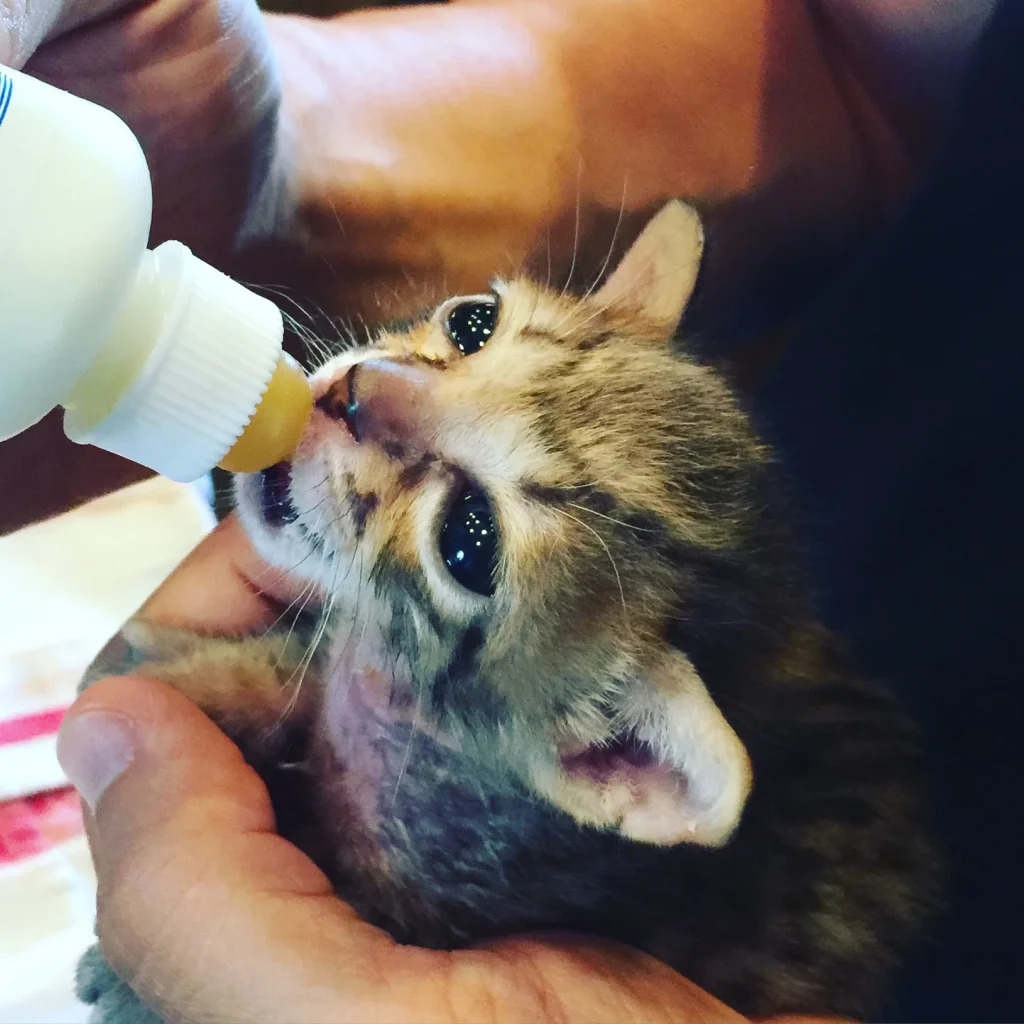Nutritional Supplements: When and How to Use Them in Cats

Understanding Nutritional Supplements for Cats
Nutritional supplements have become increasingly important in the realm of feline health, offering a means to bridge dietary gaps experienced by many cats. With the diverse range of commercial cat foods available, it’s common for owners to find themselves questioning whether their cat is receiving optimal nutrition. This inquiry is often at the root of the growing interest in supplements as beneficial additions rather than substitutes for standard diets.
One prominent reason to consider nutritional supplements lies in the potential for dietary gaps. Despite the high quality of modern cat food, there may still be deficiencies in essential vitamins or minerals. For instance, a cat may not receive adequate levels of taurine, an amino acid crucial for heart and eye health, particularly if they are on a home-prepared diet or certain types of low-quality commercial foods. Supplementing with taurine can help prevent serious health issues like dilated cardiomyopathy.
Moreover, health issues often warrant additional nutritional support. For example, cats suffering from chronic kidney disease may benefit from specific supplements like omega-3 fatty acids, which can support kidney function. In cases of arthritis, glucosamine and chondroitin supplements may provide relief by enhancing joint health and mobility, helping your cat maintain an active lifestyle.
Age is another crucial factor when considering supplements. As cats age, their bodies often require different nutrients to combat the effects of aging. An elderly cat may experience weight loss despite a normal diet due to decreased metabolism or other age-related factors. In such cases, calorie-dense supplements or those enriched with protein can be invaluable in helping maintain a healthy body weight and overall wellness.
However, it is essential to remember that not every cat will benefit from supplements. Consulting with a veterinarian is paramount to evaluate whether supplements are necessary based on your cat’s unique needs. The veterinary professional can provide tailored recommendations and help navigate the myriad of supplement options available, ensuring you select those that best support your cat’s health.

In this exploration of types of nutritional supplements, we will delve into categories like vitamins, minerals, amino acids, and herbal products, highlighting their specific uses and potential benefits. Understanding how to implement these supplements effectively can empower you, as a pet owner, to make educated decisions regarding your cat’s nutrition and overall well-being. This knowledge not only enhances your ability to care for your beloved feline but also allows you to provide them with a healthier, happier life.
LEARN MORE: Click here to discover the vital role of hydration in your pet’s diet
The Importance of Key Nutrients for Felines
Understanding the diverse nutritional needs of cats is essential for any pet owner, especially when considering the role of dietary supplements. Cats are obligate carnivores, which means their diet primarily consists of animal-based proteins. However, certain nutrients are critical to their health and are not always abundantly available in every cat food brand. This raises the question: which nutrients should be prioritized when selecting supplements for your feline friend?
Here are some vital nutrients that cat owners should pay close attention to:
- Vitamins: Cats require several essential vitamins, including vitamin A for vision, vitamin D for calcium metabolism, and vitamin E for immune function. Some commercial cat foods may lack adequate levels of these vitamins, leading to deficiencies.
- Minerals: Certain minerals, such as calcium and phosphorus, are crucial for bone health. They work in tandem with vitamins to promote proper growth and development. A lack of these minerals can negatively impact your cat’s skeletal structure.
- Amino Acids: As mentioned earlier, taurine is an essential amino acid that cats cannot synthesize in sufficient quantities on their own. Other amino acids, like arginine and methionine, are also critical for various bodily functions, including cardiovascular health and detoxification.
- Fatty Acids: Omega-3 and omega-6 fatty acids are vital for skin and coat health, as well as cognitive function. They can also help combat inflammation, which is beneficial for cats suffering from chronic conditions.
Identifying deficiencies in these essential nutrients is crucial, particularly if your cat is exhibiting signs of poor health. Symptoms such as lethargy, skin irritations, or weight loss can signal the need for dietary intervention. For instance, an ill-nourished cat may show brittle fur or excessive shedding due to insufficient fatty acids, which can be offset through omega-rich supplements.
Recognizing Your Cat’s Individual Needs
It’s important to consider that not all cats are alike. Factors such as age, size, breed, and existing health conditions can significantly influence their nutritional requirements. Young kittens, for example, need higher protein and calorie content to support their rapid growth, while senior cats may need supplements to aid in joint health or address kidney concerns.
Each feline may also respond differently to various supplements. An overzealous approach to supplementation can lead to excesses that may be harmful. Therefore, careful monitoring is essential. Keeping a record of your cat’s health and any dietary changes can help you and your veterinarian make informed decisions about nutritional supplementation.
In conclusion, the journey to ensuring proper feline nutrition may very well lead you to explore nutritional supplements. Understanding which essential nutrients to watch for and recognizing your cat’s individual needs can set the stage for a longer, healthier life. The next step is determining the right approach for incorporating these supplements into your cat’s diet in a safe and effective manner.
| Category | Key Features |
|---|---|
| Vitamins | Essential for maintaining metabolism and immune function. |
| Minerals | Help in bone health and enzyme function. |
| Omega Fatty Acids | Promote healthy skin and coat, and reduce inflammation. |
| Probiotics | Support digestive health and boost immunity. |
| Amino Acids | Crucial for muscle growth and repair. |
Nutritional supplements can be a vital addition to your cat’s diet, ensuring they receive all the necessary nutrients to thrive. Understanding when and how to use these supplements is crucial for maximizing their benefits. Cats, being obligate carnivores, often require a finely balanced intake of vitamins, minerals, and other nutrients that may not always be sufficiently present in commercial foods.Considerations include the cat’s age, health status, and lifestyle. For instance, kittens may benefit from a blend of omega fatty acids to support their growing bodies, while senior cats might need additional probiotics to help with digestion as their metabolism changes. Moreover, certain health conditions—such as arthritis or allergies—may necessitate specific supplements to alleviate symptoms or improve overall health.It’s also essential to consult with a veterinarian before introducing any new supplements; improper use can lead to potential health issues rather than solutions. Each supplement should complement a balanced diet and never replace whole foods. By adhering to these guidelines, you can help your feline friend enjoy a longer, healthier life.
DISCOVER MORE: Click here to learn how playtime impacts your pet’s well-being
Choosing the Right Supplements for Your Cat
With a grasp on the importance of key nutrients and understanding your cat’s unique needs, the next logical inquiry is: how do you choose the right nutritional supplements? The market is filled with a plethora of options, from multivitamins to specialized formulations targeting specific health concerns. Here are some key considerations that can guide you in selecting the best supplements for your feline:
Consult with Your Veterinarian
Your veterinarian should be the first resource you consult when considering supplements for your cat. They can provide valuable insights based on your cat’s health history, current diet, and any specific health issues your cat may be facing. In some cases, blood tests might be recommended to ascertain nutrient levels in your cat’s body, allowing for a more tailored supplement approach. For instance, if a veterinary check-up reveals low taurine levels, a specific taurine supplement may be necessary.
Research Quality and Safety
Not all supplements on the market are created equal. It is essential to choose reputable brands that adhere to safety standards and regulations. Look for products that are vetted by organizations such as the Association of American Feed Control Officials (AAFCO). These products typically undergo rigorous testing for both quality and efficacy. Additionally, consider third-party testing certifications, which indicate that an independent lab has verified the supplement’s contents and claims.
Formulations Matter
In an ideal world, supplements are tailored to meet your cat’s specific health conditions or life stages. For instance, senior cats might benefit from glucosamine and chondroitin supplements to support joint health, whereas kittens may need extra calcium and phosphorus for healthy bone growth. Some supplements offer a blend of vitamins and minerals suited for all life stages, while others may target specific issues like skin allergies or digestive problems. Understanding your cat’s current lifestyle and health status can help inform these choices.
Start Slowly and Monitor Reactions
When introducing new supplements into your cat’s diet, take a cautious approach. Start with a smaller dose than recommended and gradually increase it to the full serving size over several days. This gradual introduction allows you to monitor your cat for any adverse reactions, such as gastrointestinal upset or changes in behavior. If you notice any issues, consult your veterinarian promptly to determine the best course of action.
Understanding Dosage and Frequency
Dosage and frequency are critical aspects of supplement use, as too much of a good thing can become harmful. Typically, supplement recommendations will outline dosages based on your cat’s weight and specific needs. For example, some omega-3 fatty acid supplements are designed for daily use, while others may be suggested only a few times a week. Regularly reassess your cat’s condition and consult your vet to ensure you are providing the right amount of each supplement for optimal health.
Additionally, consider the form of supplements available. Chewables, liquids, and powders each have their pros and cons, making it vital to choose the form your cat is most likely to accept without fuss. Your cat’s preferences can significantly influence the effectiveness of supplementation, as a stressed cat may refuse to take or eat the supplement.
With a thoughtful approach to supplementation, pet owners can ensure their furry companions receive the nutrition they require to thrive. By engaging your veterinarian, researching your options, and being mindful of your cat’s reactions, you lay the groundwork for improved health through careful nutritional supplementation.
LEARN MORE: Click here for tips on handling aggressive pet behavior.
Conclusion: Empowering Your Cat’s Health with Nutritional Supplements
In conclusion, understanding the role of nutritional supplements in your cat’s diet can play a pivotal part in enhancing their overall health and well-being. As we’ve discussed, not all felines share the same dietary needs, and the right supplementation can address specific concerns ranging from joint health to digestive support. Consulting with your veterinarian remains a fundamental step in this journey, ensuring that any supplements chosen are safe and beneficial for your cat’s unique health profile.
The intricacies of selecting the appropriate supplements require careful consideration of quality, formulations, and your cat’s individual preferences. While the promise of shiny coats, increased energy, or improved joint function may seem appealing, it’s essential to approach supplementation with informed caution. A gradual introduction, coupled with vigilant monitoring of any adverse reactions, will safeguard your cat’s health while allowing for necessary adjustments as needed.
Moreover, as you explore the vast array of products available, remember that ongoing communication with your vet can provide the reassurance and expertise necessary for maintaining your cat’s nutritional balance. Striving for a harmonious blend of high-quality food and targeted supplements can lead to profound health benefits, ensuring your feline friend leads a vibrant, happy life.
Ultimately, for pet owners dedicated to enhancing their cat’s vitality, investing the time and effort into understanding when and how to use nutritional supplements is an integral part of responsible pet care. Embrace this knowledge as you embark on a path toward optimal feline health, and empower your cat to thrive for years to come.



